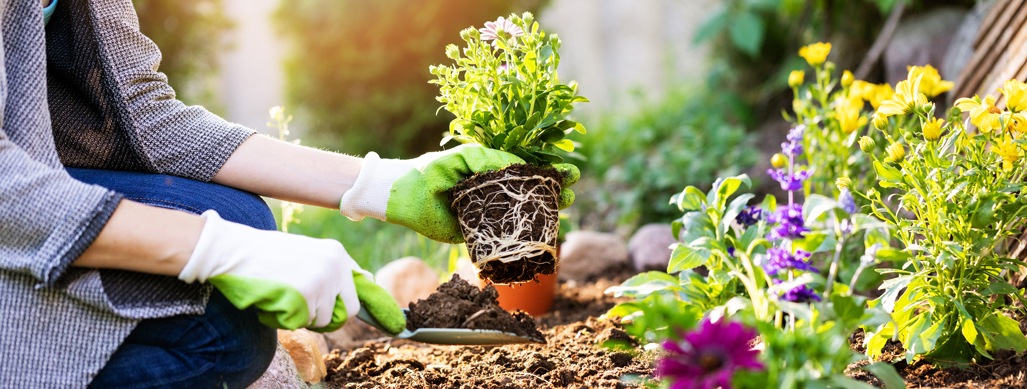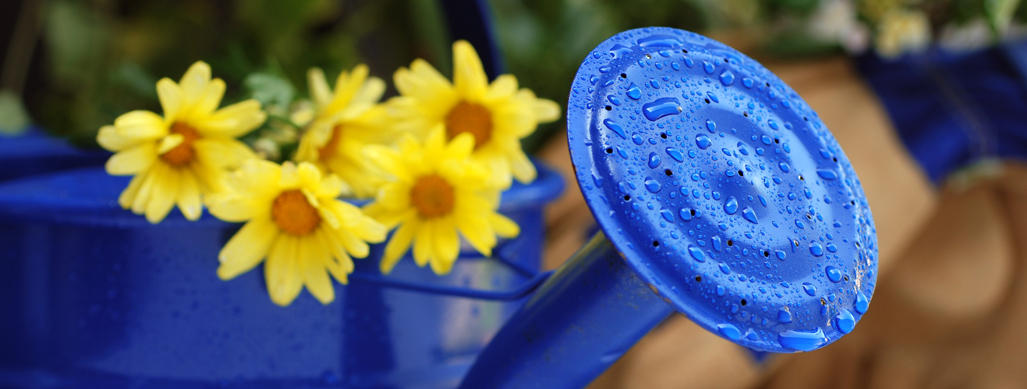Keeping your garden healthy and nourished throughout the year can be quite a challenge. Now the summer months are practically here, everyone is keen to get their gardens prepped for those sunny days and evenings.
By tackling one section at a time you will soon have your garden back in tip-top shape. Whether you’re a beginner or just need a refresher, we’ve put together a few handy tips and tricks to keep your garden at it’s best this year and the years to come.

1. Good soil
The soil is one of the most important parts of your garden and plants. Healthy, light soil will allow you to grow healthy, long-living plants, therefore your soil should be fertile and at the correct ph. If you are mixing your soil with organic matter, be sure to mix well and loosen.
- Avoid using harder soils, as they tend to become crumbly and tough over time.
- Turn your soil at least once a month
2. Hydrate, hydrate, hydrate!
Watering and feeding your garden is the most important thing you can do for it! During the warmer months, some may need watering at least twice a day, but please note that not all of them require the same amount of water, overwatering or under watering your plants can harm them.
- Water your plants in the morning when it is cool, to reduce evaporation of the water.
- If the plant leaves are turning brown, you’re over-watering!
3. Examine your plants
Examining your plants regularly will help you spot any rotting and disease before it spreads to other plants and infects the soil. There are also lots of handy tips you can follow to keep small pests and insects away from your plants.
- Read gardening magazines and articles so you know what’s bad for your plants and what to look for when inspecting them.

4. Spacing
Before you begin to plant, find out all about the flowers, bulbs or shrubs you are planting and the conditions that they strive best in i.e. directly in sunlight. Once you've done your research it's time to start planting in a suitable amount of space.
Make sure you don't plant too compactly, as tightly packed plants and bushes will create the perfect humidity for diseases to thrive and spread, therefore spacing and positioning is so important. It’s also harder for you to spot weeds, pests and diseases that may be lurking in the soil between your plants.
- Tightly packed plants fight each other for water, sunlight and nutrients causing most of them to dehydrate and die.
- Even plants of the same kind need their space, read packets and instructions before planting or purchasing.
5. Preparation is key
Before you even consider purchasing any plants or seeds, make sure your garden is prepped and able to support plant life. Make sure you know where your plants are going to go, lay down the soil ready and ensure the positions you have chosen for your plants and shrubs are suitable.
- Opt for organic soil and the least harsh chemicals possible!
- Design a layout or put signposts to where you want your plants positioned
Remember that plants need a lot of care and attention, so be cautious as to which plants you choose and do a lot of research beforehand. Most importantly, remember to enjoy your garden at the end of all your hard work!
